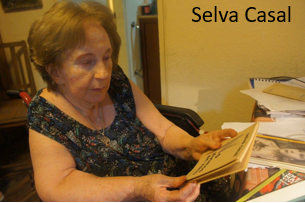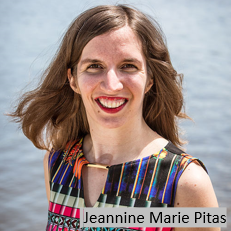We Do Not Live in Vain
We Do Not Live in Vain is the sixth book of Uruguayan poet Selva Casal (b. 1930). Drawing upon her academic training in sociology and her experiences as a penal lawyer, Casal lays bare the stark realities of the human condition: our capacity for violence and cruelty as well as our profound ability to love and care for one another. With keen observation, deep pathos, and imaginative playfulness, these poems of witness are ultimately an affirmation of human life and dignity even in the face of humanity's worst tendencies. Originally published as No vivimos en vano in 1975 during Uruguay's military dictatorship, this book solidified Casal's reputation as a political dissident and led to her losing her job as a sociology professor at the Universidad de la República.
PRAISE FOR WE DO NOT LIVE IN VAIN
To read this book is to have “the sea in your room,” so ample, multitudinous, impossible is Selva Casal’s language—and Jeannine Marie Pitas’s translation fearlessly rides the tumbling waves of image upon image, sound upon sound. But, reader, beware: below the current, there is an undertow that “grabs you by the feet and snatches you.” In Casal’s poetry, death is the other side of beauty. And not just death. but the horrific possibility of never even having been: the slowly dawning recognition that “there is no sea.” Yet as physics assures us, there is no nothing: even the most perfect vacuum is a fluster of particles and antiparticles blinking in and out of existence. Of course, if the human body entered this space, it would swell and explode. If any poetry dares to enter this dazzling and dangerous chamber, it is this.
—Michelle Gil-Montero, translator of The Annunciation by Maria Negroní
ABOUT THE AUTHOR
Selva Casal (born in 1930) lives in Montevideo, Uruguay and is the award-winning author of sixteen books of poetry, most recently Abro las puertas de un jardín de plata [I Open the Doors of a Silver Garden] (Trópico Sur Editor, 2014). A former penal lawyer, Casal is inspired by her experiences working with people who have faced injustice. Her 1975 publication of No vivimos en vano (We Do Not Live in Vain) during the military dictatorship in Uruguay resulted in her losing her position as a professor of sociology at Uruguay’s Universidad de la República. Her work has received prizes in Uruguay, Argentina and Mexico, such as the 2010 Premio Morosoli de Poesía given by the Fundación Lolita Rubial and the Premio Nacional del Ministerio de Educación y Cultura. Casal is also a painter and continues to write and paint daily. “Everything in life nourishes poetry,” she says. “Everything.”
ABOUT THE TRANSLATOR
Jeannine Marie Pitas is a Spanish-English translator, writer, and professor at the University of Dubuque, in Iowa. Her translation of Marosa di Giorgio’s I Remember Nightfall (Ugly Duckling Presse, 2017) was shortlisted for the 2018 National Translation Award, and she contributed to the translation of Amanda Berenguer’s Materia Prima (Ugly Duckling Presse, 2019), which was shortlisted for the 2020 Best Translated Book Award. She is the author of three poetry chapbooks and one full-length collection, Things Seen and Unseen (Mosaic Press, 2019). She is translation co- editor for Presence: A Journal of Catholic Poetry.
Cover art by Kaja Kwaśniewska




